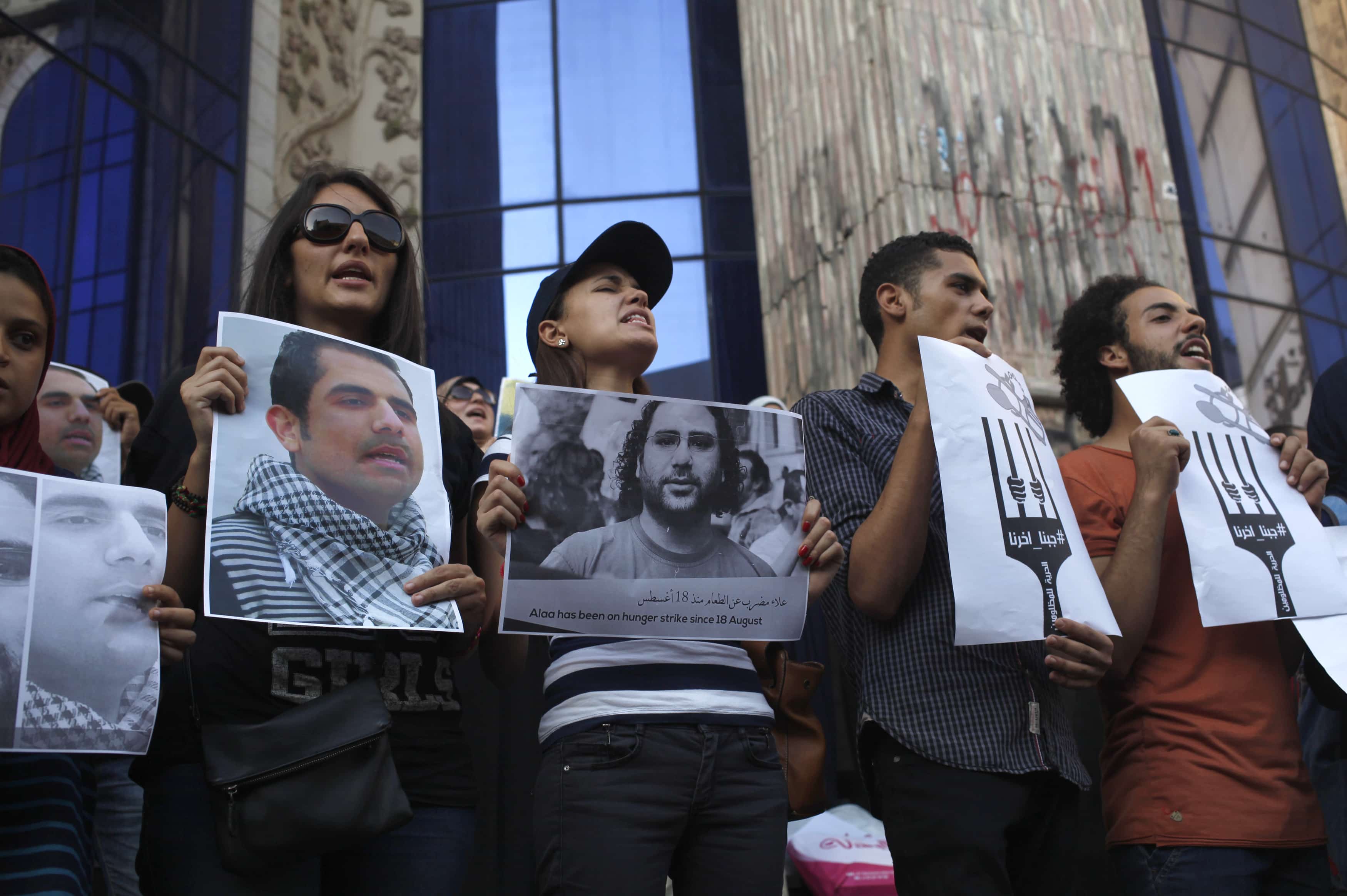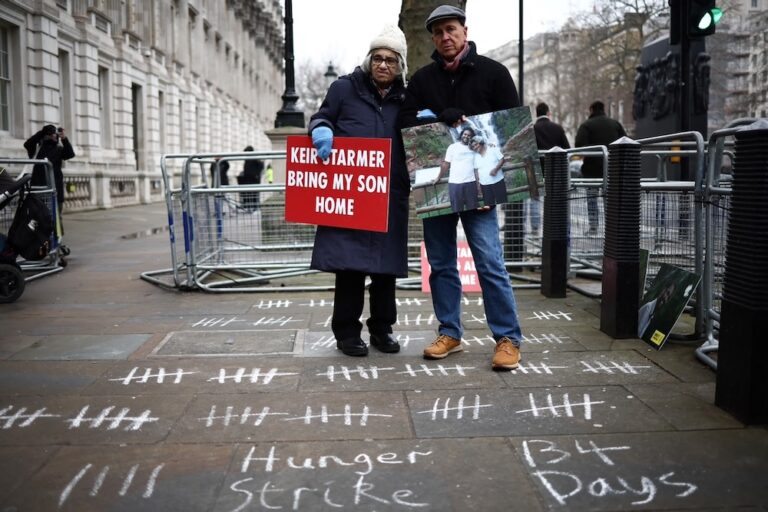Imprisoned activists across Egypt are going on hunger strikes to protest being deprived of their basic rights.
On 18 August 2014, Egyptian blogger and activist Alaa Abdel Fattah had his last meal in prison.
Convicted of violating Egypt’s notorious protest law, he was given a 15-year jail sentence this past June along with 24 other activists. Abdel Fattah’s harsh sentence was handed down in absentia in spite of the fact that he was present outside of the courtroom while the case was taking place.
To protest a judicial system that has proven to be both flawed and deeply unreliable, Abdel Fattah, considered an icon of the 2011 Egyptian revolution, started an indefinite hunger strike.
“The well-being of my body is of no value while it remains subject to an unjust power in an open-ended imprisonment not controlled by the law or any concept of justice,” he said in an open letter published in Mada Masr on 26 August.
On 10 September 2014, he has a court date that will decide whether his sentence is to be upheld.
Displaying an obvious loss of confidence in the judiciary, four detained activists announced that they too would be going on hunger strike. Ahmed Douma, Mohamed Adel, Wael Metwally and Mohammed Abdel Rahman launched a campaign titled “We are fed up,” asking other political prisoners to join them as well.
WikiThawra, an initiative created by Egyptian Center for Social and Economic Rights (ECSER), says over 40,000 people have been jailed since last year alone. Of those arrested, 89 percent were detained on political grounds, and 4 percent on terrorism-related charges.
Many of the detainees have been arrested on fabricated charges, some have been subjected to extra long pre-trial detention periods, and yet others have been denied access to their lawyers.
The Arabic Network for Human Rights Information (ANHRI) described the hunger strike as a logical and legitimate move by the country’s prisoners of conscience in light of Egypt’s flawed judicial system, noting that while prisoner releases of men accused of murder and corruption under the Mubarak regime continue, human rights defenders and activists suffer from defamation campaigns and unjust arbitrary arrests.
The network reported that dozens of prisoners have been joining the hunger strike campaign in the last two weeks, including Abdel Fattah’s imprisoned sister, Sanaa Seif, and prominent human rights lawyer Mahinour El-Masry.
El-Masry has since announced an end to her hunger strike out of concern for the health of her cellmates who joined the strike in solidarity with her.
While Egyptian security forces may seem untroubled by bad press, the growing number of prisoners on hunger strikes has captured their attention. According to Daily News Egypt, the Ministry of Interior threatened 34 detainees in Ain Shams police station with tear gas if they insisted on continuing their hunger strike.
In a statement published by Abdel Fattah’s family on Facebook on 19 August, Alaa explained the reasons behind his decision to go on hunger strike in one simple yet resounding sentence, “I will not play the role that they planned for me.”



